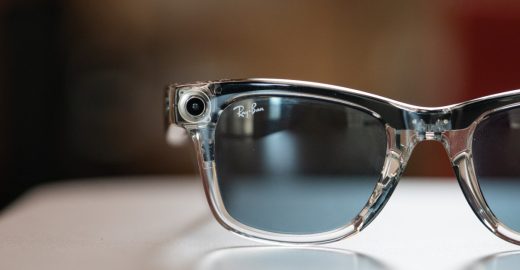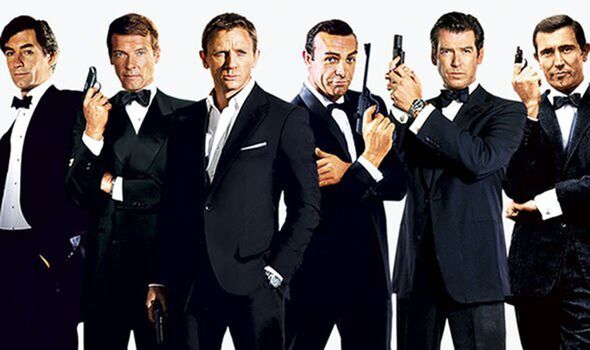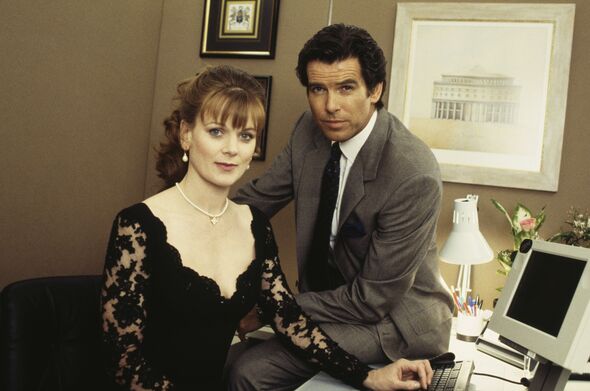Netflix doesn’t want to hear it anymore
This article is a collaboration between New York Magazine and The Verge.
The sign that Netflix’s culture had irreversibly started to change came in the form of a Google doc. The company had long prided itself on welcoming brutally honest feedback — a value embodied by the Open Q&A doc, where employees could ask executives tough questions and expect a good-faith response. Co-CEO Reed Hastings had a reputation for answering queries from any department, no matter how critical or tricky, usually within a few days: How does Netflix feel about giving money to conservative politicians? Does the company regret putting the controversial film Cuties on the platform? Should 365 Days, a film glorifying gender-based violence, be taken down?
On October 8th, 2021, dozens of employees eagerly awaited a response: where does Netflix draw the line between commentary and hate speech?
Page after page filled with angry blocks of text. “Is there a clear distinction made between offensiveness and harmfulness to populations when evaluating what content to buy and air?” asked one. “If we can measure an appetite from members for transphobic and bigoted content, will we start partnering with dangerous celebrities, actors, and comedians who are intentionally divisive (Owen Benjamin, Alex Jones, Ann Coulter) in an effort to ‘entertain the world’?” asked another.
The impetus for the questions was Dave Chappelle’s newly released comedy special, The Closer, which Netflix had bought for $24.1 million. Many employees felt the comedian had crossed a line with his jokes about the trans community. Netflix executives disagreed. Ted Sarandos, Netflix’s chief content officer and co-CEO, sent an email to directors and executives on October 8th saying The Closer wasn’t going anywhere. Chappelle’s prior special, Sticks and Stones, was the company’s most-watched stand-up set to date, but stats about its popularity did little to assuage those who found the jokes transphobic.
Sarandos’ response marked a tone shift at Netflix and in Silicon Valley more broadly. In 2009, Hastings and chief talent officer Patty McCord had published a 128-page PowerPoint presentation laying out their management philosophy: lead with context, not control; don’t hire brilliant jerks; and, most crucially, always be honest. “It’s tantamount to being disloyal to the company if you fail to speak up when you disagree with a colleague or have feedback that could be helpful,” wrote Erin Meyer in No Rules Rules: Netflix and the Culture of Reinvention, the book she published with Hastings in 2020.
The PowerPoint went viral in Silicon Valley, helping to shape a generation of tech startups looking to define their own company culture. Then–Facebook COO Sheryl Sandberg said the presentation “may well be the most important document ever to come out of the Valley.”
The veneer of transparency made Netflix one of the most desirable companies to work for in the tech industry — a place where engineers could voice their opinions freely, feel heard, and be paid around $500,000 a year. But over the past 10 years, as Netflix has gone from Hollywood outsider to one of the most powerful forces in entertainment, the company’s relationship to its workforce has changed. Previously, streaming video was a massive problem that could only be solved by investing in engineering talent. (Recall that the popularity of shows like Game of Thrones could overload HBO servers, making it difficult for viewers to watch live.) Now, the most competitive part of Netflix’s business isn’t what its coders produce — it’s what content shows up on the platform. And pressure is mounting from its rivals. Streamers like Apple TV Plus and HBO Max are growing, while Netflix recently announced that it had lost subscribers for the first time in more than a decade. The news sent its stock tumbling 25 percent, and the company has since laid off 450 people to bring costs in line with slowing revenue growth. Tech workers, meanwhile, say they’re experiencing a new kind of culture shock: an increasingly chilly response to their criticisms.
In a statement, Netflix spokesperson Emily Feingold disputed the idea that dissent is less welcome than before. “Netflix has always valued candid, transparent feedback and works hard to support it at every level of the company,” she said.
But The Closer put that commitment to the test. “After Dave Chappelle, the lines of communication that had been open for years were gone,” says a former engineer who asked to remain anonymous.
In the Google doc, one person commented, “In Ted’s email to directors, he calls out that Dave Chappelle is ‘one of our most popular comedians today’ and his last special is ‘our most watched, stickiest, and award winning stand up special to date.’ My interpretation of this message is that sticky metrics outweigh the possibility of harm. Is that a fair interpretation of that email?”
Days passed, and the question remained unanswered.
Hastings has long credited the company’s success to its internal work culture. In 2000, he felt like a fool after Blockbuster CEO John Antioco flatly rejected his offer to sell him Netflix for $50 million. Ten years later, Blockbuster was bankrupt and Netflix was worth more than $9 billion. “It was not obvious at the time, even to me, but we had one thing that Blockbuster did not: a culture that valued people over process, emphasized innovation over efficiency, and had very few controls,” Hastings wrote in No Rules Rules, a book that is equal parts business manifesto and Netflix sales pitch.
That culture permeated the company’s engineering organization. Even in Silicon Valley, where coders were treated like kings, Netflix stood out. Where companies like Google and Apple had upwards of eight levels to designate rank, Netflix essentially had one: senior software engineer. Managers bent over backward to make people feel at home and encouraged staffers to give notes on issues large and small. Kevin Cureton, a software engineer, wrote a memo shortly after he started about improvements the engineering organization needed to make in how it tested the Netflix app. The engineer didn’t hold back, openly calling out dysfunction and identifying unnecessary obstacles to the process. “My manager was really happy,” he recalls. “She said, ‘This is the kind of context we are looking for people to bring up.’ ”
The culture of feedback is not atypical in engineering organizations, where a small technical error can bring down an entire product or service. “In tech, when something is literally wrong in the code, you want to fix it or everything gets messed up,” explains one former employee. But while an opinionated workforce might be lauded in tech, elsewhere, it could be seen as brash and entitled. How many creatives are eager to receive notes from engineers?
In 2017, the company opened the Icon building on Sunset Boulevard, cementing its place in Hollywood. Compared with the Los Gatos headquarters, the new building was lavish; it had multiple security checkpoints and a secret entrance for celebrities. Two years after it opened, The New York Times dubbed it the “Town Hall of Hollywood.” “I got into the office one day, and I had to ask Jack Black to step out of the way to get to the badge scanner,” a former engineering manager remembers. The building was meant to have an open floor plan — a tech staple that supposedly discourages a workplace pecking order — but many of the private meeting rooms had been commandeered by directors and producers. The company had even set up domes in the break rooms for people to take calls. When employees visited from Los Gatos, they would end up wandering around the building with their laptops trying to find a place to take a meeting. (Netflix disputed this description of the office, noting “all these buildings have been revamped and we now have much more space in the offices.”)
What the building lacked in space, it made up for in glamour. Once, two engineers visiting from Los Gatos were heading to the elevator when they heard someone say, “Hey.” They looked up and saw Shaquille O’Neal giving them a friendly nod. Later, they noticed Chris Pine walking down a hallway. “That never happened in Los Gatos,” one says.
As Netflix expanded its original content division, employee resource groups, comprising staffers from across the organization who shared a common identity, began jumping into the creative process. It was an informal collaboration: if Netflix was working on a movie that dealt with a sensitive topic, the producer might reach out to the inclusion-and-diversity team, which would then contact an ERG to get feedback. To those outside the company, it might have seemed odd — or frustrating — that engineers were trying to help shape movie plotlines. At Netflix, staffers saw it as their right and responsibility to bring company values to life through the content that appeared on the platform.
In May 2018, Netflix acquired the rights to the film Girl after it debuted at Cannes and won the Caméra d’Or. The story centers on a trans teenager trying to become a professional dancer. Shortly before the film was set to come out on Netflix, members of the Trans* ERG were invited to an early screening.
Employees who watched the film were horrified. The camera lingered on the teenager’s naked body and glorified self-mutilation, ending with a scene in which the main character cuts off her own genitalia. The director and a co-writer were both cisgender. “You’ve heard of the male gaze, right?” the former Netflix engineer, who watched the screening, says. “This felt like the creepy gaze of the cisgender person looking over at a trans person’s body, and then it ended on an act of self-mutilation as self-liberation.”
Employees met with leaders in the content division in person multiple times to discuss their concerns — conversations that were overseen by the inclusion-and-diversity team. Two staffers who were present at the meetings say the leaders were initially defensive, noting the director had gotten positive response from trans viewers. But, eventually, they agreed to add a warning ahead of the film. “This film covers sensitive issues, and includes some sexual content, graphic nudity, and an act of self-harm,” it read. “Viewer discretion is advised.”
For management, it was a relatively small concession. But for the Trans* ERG, it was a win. Employees felt like they had been heard. “We didn’t get everything we wanted, but we felt like, Okay, they’ve already paid for the movie. They can’t not show it,” the former engineer says. “But at least they were willing to work with us. The process felt collaborative even though it was a bit hostile.”
In the early days, Sarandos was known for taking criticism on the chin. An anecdote from No Rules Rules recounts a moment when Sarandos misunderstood the licensing deal for The Blacklist in 2014. An employee four levels below him called him out in a meeting. Sarandos put his hand on the man’s shoulder and thanked him. But as the executive grew more powerful, he became less open to discussing what content Netflix should have on the platform. He reportedly clashed with Cindy Holland, the former vice president of original content who was responsible for bringing in award-winning productions like House of Cards and Roma, over the company’s contract with Chappelle. When Sarandos became co-CEO in 2020, he fired the female executive.
Some of Sarandos’ lieutenants were similarly resistant to feedback, particularly from Los Gatos staffers. What expertise did techies have in making movies? Over time, it started to feel as if Netflix were two separate companies: the feedback-friendly tech organization, where everyone had an opinion on everything, and the top-down Hollywood studio, where executives had the final word.
Cureton, the engineer who had been rewarded for sharing tough feedback early on in his tenure, moved from the product to the studio organization and immediately found it less open to criticism. When he tried to fix technical problems outside his scope of work, he was warned to mind his own business. Eventually, he was fired. “Too much feedback and being out of my lane too often were the reasons I was given,” he says.
Executives might have been surprised at the level of anger emanating from employees, but some already knew what they were getting into. A Netflix analyst had put together a detailed document identifying potential red flags a week before The Closer was released. “The majority of the set deals with cancel culture and especially his TERF-y views on trans people,” it read.
The streaming giant often conducted analyses of films. The resulting briefs were meant to alert all relevant parties to offensive or boundary-pushing scenes, according to an internal explanation.
The analysis document for The Closer identified 20 red flags in the stand-up set. “[00:49:55] A very mean spirited joke here as he questions a trans woman who kept making reference to ‘her people’ — ‘Were you all kidnapped in Transylvania and brought here as slaves?’ ” reads one. “[00:55:15] Chappelle calls a Trans vagina: ‘Beyond Pussy or Impossible Pussy,’ ” reads another.
The analysis concluded by saying Chappelle fans would “certainly hit play,” while his detractors should “clearly avoid these 71 minutes of unfettered, cynical, and sarcastically pointed observations.”
The brief shocked some employees. A language manager in Brazil read the document and pinged a colleague on Slack. “To be honest I was not expecting content so … shocking! I mean … it is really really heavy!” she wrote. “We have to follow the creative intent and here he [sic] creative intent is racist, homophobic, misogynist, and dirty.” A manager responded that this was Chappelle’s brand: “I would insist that the creative intent is followed. It is not our place to tone down the content.”
Of course, the tenor only became more heated after the special was released. Workers were infuriated as their Open Q&A questions went unanswered. “It definitely stood out — I assume there was basically somebody saying, ‘Shut the fuck up while we figure this out,’ ” says a former Los Gatos engineer. (“Given the volume of questions,” explained Netflix spokesperson Feingold, “we opted for town halls instead.”) The Trans* ERG put together a list of demands, including adding a content warning to The Closer and other transphobic titles.
Netflix execs had no intention of doing that. The communications team allegedly told employees that adding a content warning to The Closer would open the door for countries like Saudi Arabia to request similar warnings on LGBTQ titles and noted that Netflix adds them on titles only if the creator requests it. The one concession employees got was from the comedy team, which agreed to alert them the next time it released a controversial special. The team stayed true to its word: before Netflix released Ricky Gervais’ stand-up set in May, which included jokes about the trans community, employees received a heads-up that it was coming. This time, there was very little pushback.
That same month, Netflix published an update to its culture deck to include a section on artistic freedom. It included the line “If you’d find it hard to support our content breadth, Netflix may not be the best place for you.” As the company was workshopping the memo, executives sent around a draft for feedback that included the line “As employees, we must be prepared to defend a broad range of stories and storytellers, even if we find individual titles offensive or counter to our personal values. Depending on our roles, we may also need to work on titles we wish weren’t on Netflix, or wouldn’t choose to watch.” Employees pushed back against the use of the word defend, and in a moment that felt like Old Netflix, it was eventually taken out.
Netflix also banned creatives from soliciting feedback from ERGs, saying in a statement that “the role of ERGs is to create a community of belonging for different groups within Netflix rather than advise on content.” If creatives have questions about sensitive content, they’re to contact the inclusion-and-diversity team, which will then consult with a third-party organization.
On the anonymous employee forum Blind, which requires users to have a corporate email address to access company-specific channels, Netflix staffers are discussing the change. “Today, as a manager, we can’t speak up in content or studio teams, and what Ted says goes,” says one. “Very top down culture and even when we raise the problems we see early on in our shows, our voices are not heard.”
One person suggested the company could save money if it fired more higher-ups on the Hollywood side; another user responded that Netflix should “stop spending astronomical amounts of money on mediocre content.”
It was a conversation that previously might have happened in the Open Q&A document. Now, the Google doc just seemed like another venue for Netflix executives to post platitudes.
You may be interested

Here’s more of what you’ll see through Meta’s $1,000 smart glasses
admin - Apr 01, 2025[ad_1] Meta is reportedly preparing a higher-end version of its Ray-Ban Meta smart glasses with a built-in screen to launch…

M&S shoppers 'not buying' returning dessert after spotting price tag
admin - Apr 01, 2025[ad_1] Marks and Spencer fans have been left divided over the price of one of the retailer's most popular desserts…

Households in England could be hit with £603 bills blow from today
admin - Apr 01, 2025[ad_1] Households in England and Wales face crippling average bills of up to £603 on average from April 1. [ad_2]…
Leave a Comment
You must be logged in to post a comment.





















